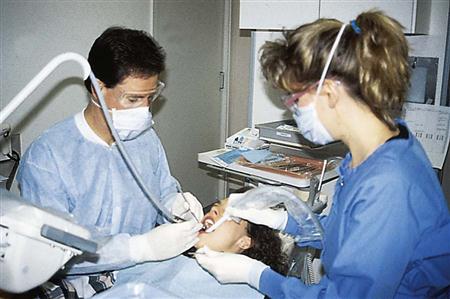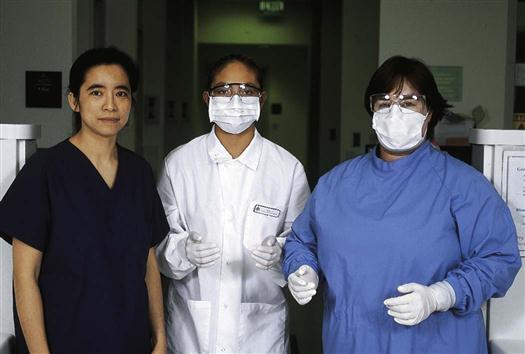Professional and Legal Aspects of Dental Assisting
Learning Objectives
1 Pronounce, define, and spell the Key Terms.
2 Discuss the concept of professionalism.
3 Discuss the characteristics of a professional dental assistant.
4 Demonstrate the personal qualities of a professional dental assistant.
5 Explain the difference between ethical aspects and legal aspects of dentistry.
6 Explain the purpose of a state Dental Practice Act.
7 Describe the types of dental auxiliary supervision.
8 Explain the difference between certified dental assistants and registered dental assistants.
9 Discuss the steps necessary to help prevent malpractice suits.
10 Demonstrate how to make corrections to a patient’s record.
11 Name the professional organizations for dentists, dental assistants, and dental hygienists.
Key Terms
Act of Commission
Act of Omission
Breach of Contract
Certified Dental Assistant (CDA)
Civil Law
Contract Law
Dental Auxiliary
Direct Supervision
Ethics
General Supervision
Implied Consent
Informed Consent
Legal
Licensure
Patient of Record
Professionalism
Reciprocity
Registered Dental Assistant (RDA)
Res Gestae
Risk Management
Tort Law
You chose an exciting and challenging career when you decided to become a professional dental assistant. A career in dental assisting offers variety, job satisfaction, opportunity for service, and financial reward. It is a career that requires dedication, personal responsibility, integrity, and a commitment to continuing education.
A highly skilled dental assistant is a vital member of the dental healthcare team. Reducing patient anxiety, making decisions, simplifying treatment procedures, and improving the quality of patient care are all part of a dental assistant’s day (Figure 2-1).
Characteristics of a Professional Dental Assistant
Becoming a dental assistant involves more than acquiring the knowledge and developing the skills necessary to perform a variety of duties. Becoming a dental assistant is about becoming a professional.
Professionalism is an attitude that is apparent in everything you do and say, in and out of the dental office. Professionalism is what distinguishes people who “have a job” from those who “pursue a career.” The public’s expectations of healthcare workers are higher than expectations of individuals in other occupations. The dental assistant must demonstrate patience and compassion when communicating with patients and other team members. When you demonstrate your professionalism, you receive respect and acknowledgment from your colleagues and patients as a valued member of the dental healthcare team.
Professional Appearance
The dental assistant who has a professional appearance promotes the patient’s confidence in the entire office and improves his or her dental experience. Essential aspects of a professional appearance include (1) good health, (2) good grooming, and (3) appropriate dress.
To stay in good health, you must get an adequate amount of rest, eat well-balanced meals, and exercise enough to keep fit. Dental assisting is a physically demanding profession.
Good grooming requires paying attention to the details of your personal appearance. Personal cleanliness involves taking a daily bath or shower, using a deodorant, and practicing good oral hygiene. Do not use perfume or cologne. You are working in very close personal proximity to coworkers and patients who may be allergic to or irritated by some scents. Avoid the use of tobacco products because the odor lingers on your hair and clothing, and is offensive in a professional setting.
Appropriate dress involves wearing clothing appropriate for the type of position in which you are working. Regardless of the type of professional wear, it must be clean, wrinkle-free, and worn over appropriate undergarments (Figure 2-2). In any position in a dental office, excessive makeup and jewelry are not considered appropriate for a professional appearance. Infection control requirements must also be considered when clinical wear and jewelry are selected (see Chapters 7 and 8).
Teamwork
Teamwork is extremely important in a dental office. The letters in the word team mean, “Together, Everyone Accomplishes More.” Dental assistants should offer to do an absent colleague’s work and should be willing to help coworkers when other tasks are completed. When there are several assistants in an office, each should be able and willing to substitute for the others in an emergency.
Attitude
Patients, coworkers, and employers appreciate the dental assistant who has a good attitude. It is important to show willingness to get along by avoiding criticism of others, showing appreciation for what others have done, and being willing to pitch in and help. The dental office can be a stressful place for patients and staff, so it is important to maintain a positive attitude.
Dedication
Professional dental assistants are dedicated to their dental practice, their patients, and the profession of dental assisting. Dedication is possible only if the assistant truly cares for people, is empathetic to their needs, and maintains a positive attitude.
Responsibility and Initiative
The dental assistant can demonstrate work responsibility by (1) arriving on time, (2) staying for the full shift, (3) being a cooperative team member, and (4) not asking to leave early. Assistants should understand what is expected in their regular job and, if time permits, should volunteer to help others who may be overworked.
You can show a willingness to learn additional skills by asking questions and observing others. Show initiative by finding tasks to perform without being asked. Show responsibility by calling the office when you are ill or unavoidably late. Never discuss your personal problems in the dental office with your patients or with other staff members.
Confidentiality
Everything that is said or done in the dental office must remain confidential. Dental assistants have access to a vast amount of personal and financial information about their patients. Such information must be held in strict confidence and must not be discussed with others (Figure 2-3). Breaches of confidentiality can result in lawsuits against all parties involved.

You cannot reveal the identity of a patient or any information from his or her records without the patient’s written consent. Never discuss patients with anyone outside the dental office.
Personal Qualities
Most people do not enjoy a visit to the dentist, and many are stressed or intimidated. The dental assistant must (1) demonstrate sensitivity to the patient’s needs, (2) show empathy, (3) say “the right thing at the right time,” and (4) be sincere (Box 2-1).
By learning to be a good listener, you will develop sensitivity for the opinions and concerns of others. It is nearly impossible to build rapport (good relations) with the patients in your office if they do not trust you.
Ethics and Law
In today’s society, we have laws that enforce certain standards of behavior. In addition to the law, each of us has our own personal values, morals, and standards of behavior. Throughout life, our values and morals may be modified as a result of increased knowledge, improved understanding, and life experiences.
Laws are written to indicate the minimum standard of required behavior. Ethics are voluntary chosen standards.
Difference Between Ethics and Law
Ethics deals with moral conduct (right and wrong behavior, “good” and “evil”). Ethics includes values, high standards of conduct, and personal obligations in our interactions with other professionals and patients. There are very few absolutes and many gray areas regarding ethics. Ethical issues are subject to individual interpretation as to the right or wrong of particular situations. A behavior can be unethical and still be legal, but it cannot be illegal and still be ethical.
Ethics refers to what you should do, not what you must do. The law deals with what you must do.
All major professions have a written code of ethics. The code of ethics states the ideal behavior, which is always higher than the minimum standard, set forth by the law. Ethical behavior is important to dental healthcare professionals as they provide dental care to their patients (Box 2-2).
Types of Law
Law can be divided into criminal law and civil law. Criminal law involves crimes against society. In criminal law, a governmental agency, such as law enforcement or the board of dentistry, begins the legal action. For example, a dental assistant who performs a procedure that is not legal is in violation of criminal law. Insurance fraud is an/>
Stay updated, free dental videos. Join our Telegram channel

VIDEdental - Online dental courses




